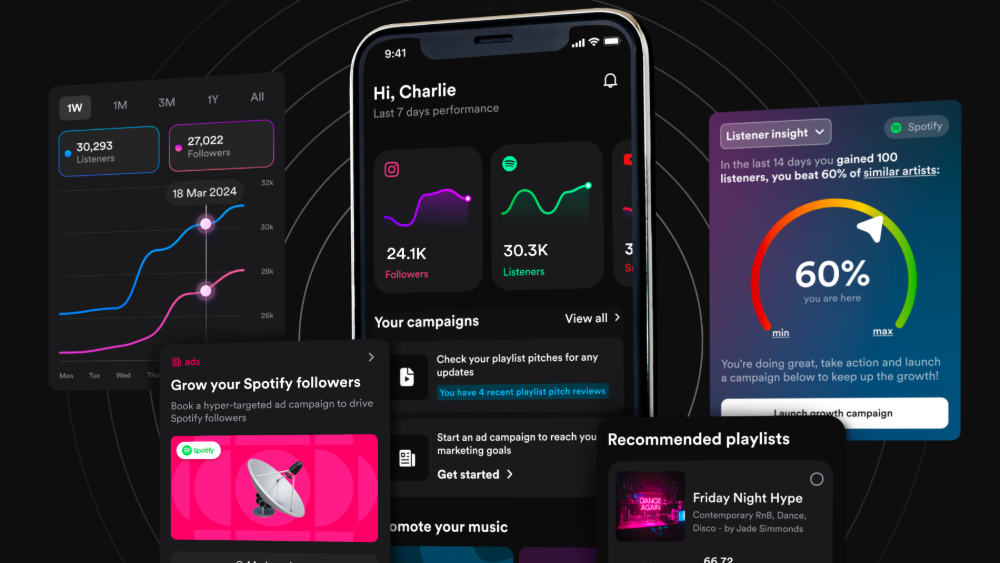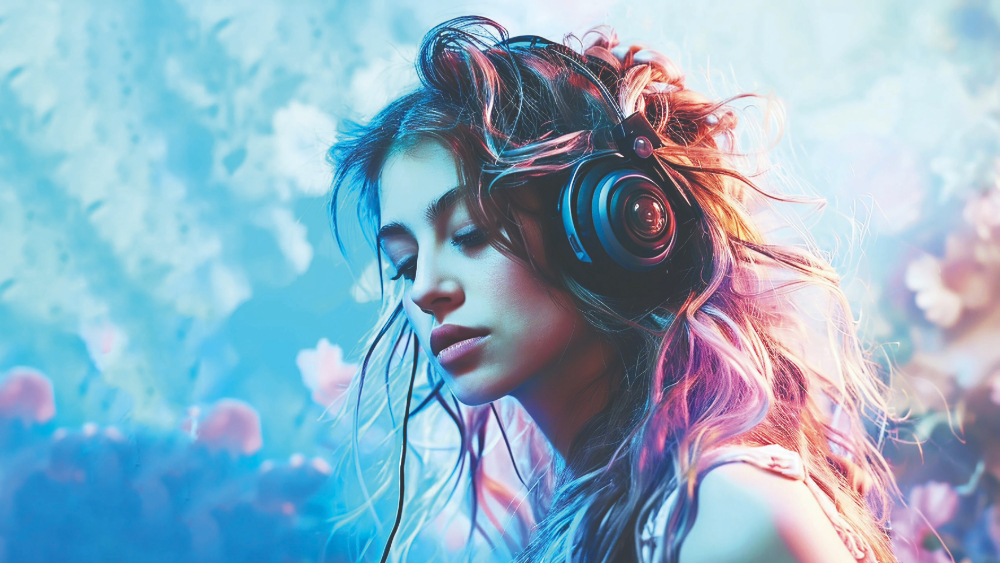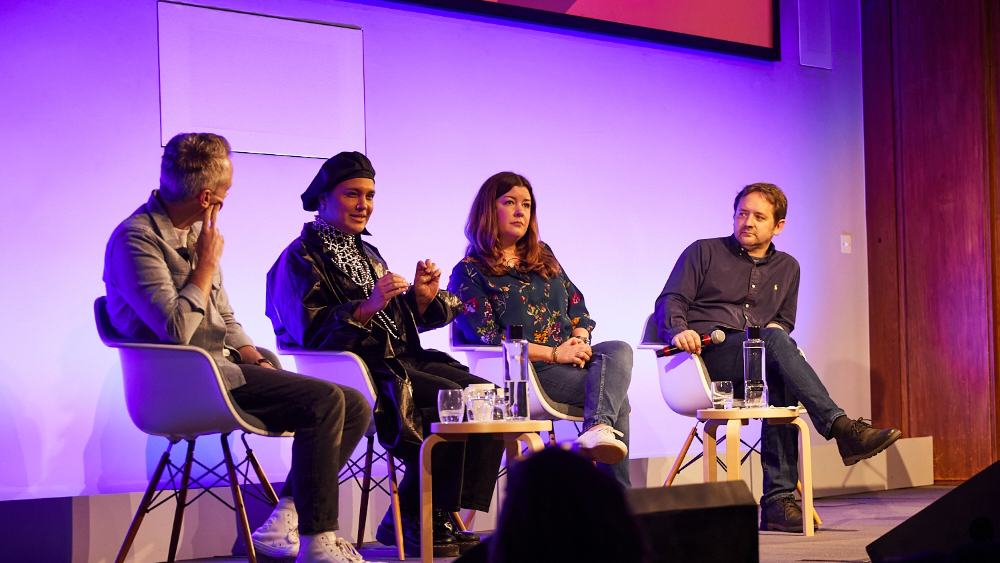From Fred again..’s use of personal voice notes and everyday sounds to the late SOPHIE, whose own voice centralised many of their compositions, there’s a very long line of producers who have spent years successfully cultivating their own distinctive sound. How, then, might artificial intelligence (AI) influence or disrupt this time-honed process?
While some music creators’ concerns about AI outweigh their enthusiasm, others have been more welcoming — particularly when it comes to the responsible use of assistive AI in composition. Artist, producer and creative director ILĀ is an example of the latter, telling M that the technology has helped enhance their sound.
‘The only AI tools that interest me are the ones where I provide the input and they provide the output,’ ILĀ says. After briefly investigating generative software, it quickly became clear to them that generative AI music lacks a human quality: ‘When you generate around 10 songs [using AI], they all start to sound the same.’
ILĀ instead focused on exploring assistive AI as a tool to enhance their music production. ‘I’ve mainly used it for timbre transfer, which is a sound design tool that swaps [one] voice for someone else's,’ they explain. By transferring the vocals of consenting collaborators in this manner, ILĀ is able to create unique and varied textures and, perhaps most crucially, save hours of studio time and reduce costs — a significant advantage for any producer who might be looking to save money.
As well as timbre, ILĀ has recently used AI to resequence compositions, naturalise drumbeats and humanise elements of certain sounds — ironically ‘using AI to make something sound more human,’ they note — in their upcoming work with BISHI, Reeps One and Imogen Heap. The musician adds that assistive AI has allowed them to explore ideas that they might not have considered before.
ILĀ’s primary AI source currently is Neutone, an AI plugin which ‘bridges the gap between AI research and creativity’. Marketed as an accessory to production, similar to DAACI (which ILĀ also uses), Neutone can be trained on both instruments and voices to then transform the timbre of any input. New sounds that were once either highly complex or unattainable to create are now suddenly easily accessible, while the original sound remains authentic to the user. ILĀ envisions that DAWs will eventually evolve to operate like Photoshop — intuitive, AI-integrated and easy to use.
‘The only AI tools that interest me are the ones where I provide the input and they provide the output.’
As a music creator who has been producing professionally since 2016 and conducts two choirs, it’s no wonder that ILĀ’s sound is so vocally led. ‘In the 1900s, the voice and the microphone became one. It’s only a matter of time before AI and the producer do the same,’ says ILĀ. ‘Yes, it can make songs, but can it do it with soul and spirit?’
Fear has often been an inspirational emotion for ILĀ. ‘Traditionally, as an artist, I like to go to places that scare me,’ they explain. ‘If there’s a feeling of discomfort, I want to investigate it.’ For many music creators, one such fearful place is AI’s potential: ‘The fear of losing our own identity and getting replaced,’ to be specific.
However, ILĀ is choosing to take hold of this particular fear and use it to create. ‘The way we sing has changed hugely, even in the last 150 years,’ they explain. ‘The invention of the microphone opened up huge possibilities and then changed vocal practices. But at the same time, people haven’t stopped singing opera.’
With a keenness to innovate, ILĀ aims to put as much life into their music as possible — instilling a human touch to their work that AI cannot replicate. ‘My music is kind of like a sculpture,’ they add. ‘I effectively carve it out of raw material. Humans are special: what we do [creatively] is special and unique.
Even in the age of AI, an artist's sound remains intensely personal. But, much like any technological innovation, the implications of AI’s impact on the creative industries are still yet to be fully understood. For ILĀ, it’s how we as humans react to creativity and ownership that will ultimately shape the future.
While songs can now be generated by AI at will, we as humans still value emotion and heart within the music we listen to. It’s therefore up to the listener to map the artificially intelligent future, as ILĀ emphasises: ‘It’s much more a broader picture about how we are in society and how we take care of each other.’
While the fear of AI replacing human creativity is certainly valid, artists like ILĀ are demonstrating how the responsible use of AI can be a powerful tool that enhances creativity.





